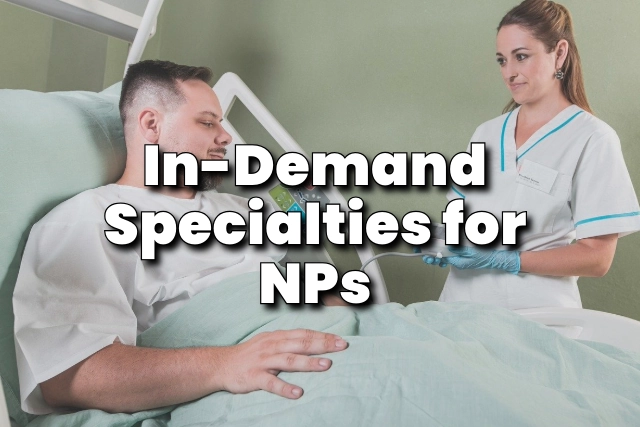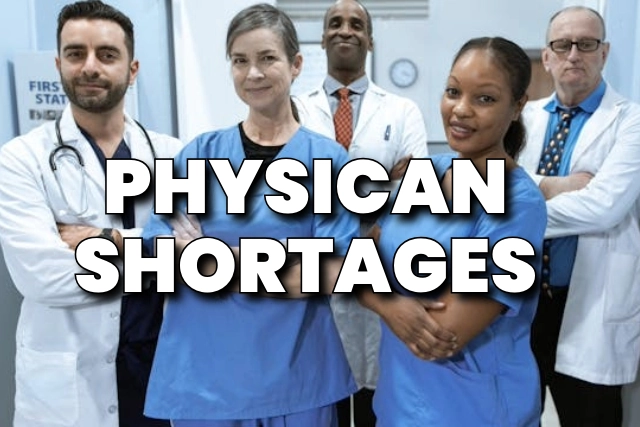Hospice Medical Directors Create A Home For The Dying
Medical directors play a pivotal role in healthcare facilities, but those in hospice have a special kind of personality. It takes a unique person to work with patients who know they’re dying and to give them the care they deserve.
In general, medical directors oversee and manage the facility’s operations and staff, directly influencing the quality of patient care.
Physicians may be directly responsible for their patient’s medical care, but how they treat and care for their patients reflects on the facility and everyone who works there. Medical directors must keep things running smoothly to maintain their facility’s standards and ensure the best patient care.
Medical Directors Are Business People
Medical directors run a facility’s business side, ensuring the medical side remains top-notch.
They work with vendors to keep their stock supplied, they maintain the budget, and they ensure government and insurance compliance, among many other things.
Creating A Good Work Environment
Medical directors are also responsible for maintaining the best possible working environment for their physicians and other staff. Facilitating a good work environment includes ensuring the staff feels supported and keeping an excellent physical environment with up-to-date equipment.
They develop and uphold the facility’s policies, procedures, and protocols to ensure everything runs smoothly.
Medical directors continually work to improve their facilities. The medical field is highly competitive, and science is constantly changing, so medical directors must stay on top of their game to keep their facilities running at the highest standards.
Likewise, this means that medical directors push their staff to continually learn, whether it be in-facility medical training, scientific research, or other educational tools.
Why Are Medical Directors Needed In Hospice Care?
Hospice patients are some of the most vulnerable in the medical community. As such, medical directors are essential in regulating their facilities and staff so patients reach the end of their lives with peace and dignity.
What Do Hospice Medical Directors Do?
One study observed six medical directors working in hospice care over two years to understand their responsibilities better. Here are the primary responsibilities these medical directors were observed performing:
- Consulting and maintaining communication with physicians
- Work with the patient’s primary physician to determine life expectancy
- Approve cases for hospice admission
- Education of staff
- Helping with care plans
- Maintaining quality assurance
- Handling budget issues
- Work as a primary physician as needed
Interestingly, most medical directors in hospice care work only a few hours a month, meaning they are not involved in the day-to-day activities.
While the job of a medical director in other settings sometimes involves communicating directly with the patient and their family, hospice medical directors rarely interact with those receiving care in their organizations.
So You Want To Be A Medical Director In Hospice Care?
Becoming a medical director is not a linear path. It’s a complex career with many responsibilities, and medical directors come from various medical and professional backgrounds.
Medical Directors Come From Many Backgrounds
Some medical directors begin their careers as physicians, eventually expanding their jobs to include running a facility as medical directors.
Others are hospital administrators with less of a medical background and more of a professional one. Others may be leaders of specific units, such as hospice, or clinical directors.
It’s common for medical directors to earn a master’s degree in public health, health administration, or other healthcare-related fields.
Certifications For Hospice Medical Directors
While certifications aren’t always necessary depending on the organization, they are wonderful for educating current and prospective medical directors and can improve the quality of their work.
The American Academy Of Hospice And Palliative Medicine
The American Academy of Hospice and Palliative Medicine offers medical directors and physicians certification in hospice care. Hospice regulations are complex, and knowledge of hospice care is constantly evolving. The certification helps prepare hospice medical directors by expanding their skills and expertise.
The Hospice Medical Director Certification Board
Other facilities may require prospective hospice medical directors to pass the Hospice Medical Director Certification because hospice care requires unique skills and knowledge that typical medical directors may not have.
To be eligible for the HMDCB certification exam, you must have a license to practice medicine in the United States or Canada, have participated in at least 400 hours of hospice “activities,” and conform to the HMDCB’s code of conduct.
The Qualities Of A Good Hospice Medical Director
Various qualities are helpful for someone pursuing a hospice medical director career, but organizations typically seek the following skills:
Professionalism. Situations in healthcare can be stressful, especially in situations where the patient is nearing the end of their life, like in hospice. A medical director must be able to remain professional, no matter what complications may arise.
Respect. Likewise, patients nearing the end of their lives want respect and dignity—they don’t want to be treated like a number. Medical directors must also treat their staff with respect since the staff can make or break an organization.
Responsibility. Medical directors have many duties, including maintaining patient care, policies and procedures, and adequate work conditions for their staff.
Integrity. Caring about people and wanting to do the right thing is invaluable for anyone working in the healthcare industry, even if they aren’t hands-on with the patient’s care.
Empathy. A significant part of a medical director’s job is ensuring that physicians and other staff members provide the best patient care. They must look out for the patient’s best interest, evaluate the quality of care, and recognize areas where care is lacking.
Will You Become A Hospice Medical Director?
The road to becoming a hospice medical director may be long, but it’s rewarding in all the best ways. You’ll be responsible for maintaining an amazing facility where the staff feels supported, and the patients feel cared for.
If you have the right qualities and the drive to work hard, becoming a hospice medical director might be your calling.
We have Openings for Hospice Medical Directors
Momentum Healthcare Staffing is all about connecting medical professionals to their dream jobs. If you’re seeking a rewarding career as a Hospice Medical Director, please reach out to us today or visit our job board to learn more. We can help match you to the position that aligns with your professional and personal goals.










Recent Comments